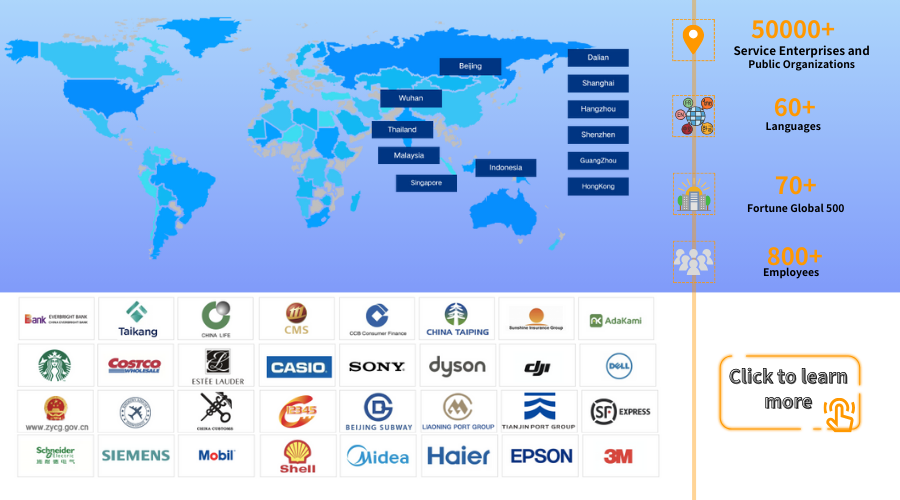Driven by the wave of digitalization, enterprises’ customer communication needs are constantly evolving. Against this backdrop,
cloud call center systems have emerged as powerful tools for many enterprises to enhance the efficiency and quality of customer service. However, the market is flooded with a wide range of cloud call center systems—varying greatly in quality—and enterprises may easily fall into pitfalls if they are not careful during the selection process. Below, we will delve into the key criteria for choosing cloud call center systems and tips to avoid pitfalls, helping enterprises make informed decisions.
1. Clarify Your Business Needs to Precisely Match System Functions
Enterprises in different industries and of different sizes have vastly different requirements for cloud call center systems. Take sales-oriented enterprises as an example: the outbound sales team of a well-known e-commerce company makes thousands of outbound calls daily. They rely heavily on the system’s predictive outbound call function, which enables them to screen potential customers accurately and make batch calls—significantly improving sales efficiency. At the same time, the sales team also requires the system to have robust Customer Relationship Management (CRM) integration capabilities, allowing real-time updates of customer information and recording of sales follow-up progress during calls.
In contrast, after-sales service-oriented enterprises—such as the after-sales customer service department of a large home appliance brand—prioritize intelligent call routing. Based on factors like the type of customer inquiry and historical service records, calls are quickly assigned to the most suitable customer service representatives, ensuring that customer issues are resolved professionally and efficiently. Additionally, a comprehensive knowledge base is crucial: it allows customer service staff to quickly look up information such as product fault solutions and maintenance policies, thereby enhancing service quality.
Before selecting a system, enterprises must thoroughly map out their business processes, clarify core needs, and avoid being misled by overly complex system functions or purchasing unnecessary functional modules.
2. Evaluate System Stability and Reliability to Ensure Uninterrupted Business Operations
System stability is the lifeline of a cloud call center. An online education institution once purchased a low-cost cloud call center system during its peak enrollment period. However, during peak inquiry hours, the system frequently experienced freezes and disconnections, resulting in the loss of a large number of potential customers and a severe impact on enrollment performance. The root cause was the system’s unreasonable architecture, which could not withstand the pressure of high-concurrency calls.
A professional cloud call center system should adopt an advanced distributed architecture with strong elastic scaling capabilities, allowing it to automatically adjust resource allocation based on fluctuations in business volume. For instance, Tianrun Rongtong’s financial-grade architecture guarantees 99.99% availability and supports 2,000 concurrent agent logins without freezes—providing enterprises with stable and reliable service assurance. Meanwhile, the system should also have a sound disaster recovery plan, including features such as remote active-active deployment and hot standby switching, to ensure business continuity in emergency situations.
When selecting a system, enterprises must require service providers to provide third-party stress test reports to verify the system’s stability under high-concurrency scenarios.
3. Focus on the Practicality and Usability of System Functions to Improve Agent Efficiency
While rich functions are important, practicality and usability are the key. Some cloud call center systems are loaded with seemingly advanced features, but in actual use, these features are disconnected from business scenarios and difficult to put into practice. For example, an enterprise purchased a system that claimed to have advanced functions like intelligent quality inspection and semantic analysis. However, due to inaccurate algorithms, the quality inspection results had large errors—forcing customer service staff to spend a lot of time on manual rechecking, which instead increased their workload.
A high-quality cloud call center system should have a simple and intuitive interface, allowing customer service staff to get started quickly without complex training. At the same time, system functions should be closely aligned with business processes. For example, an intelligent routing engine can automatically assign calls to the optimal agents based on multiple dimensions (e.g., customer IVR selections, historical service records). Compared with the traditional random assignment model, this significantly reduces customer waiting time. He Li Yi Jie’s cloud call center system, for instance, optimizes operation processes and enhances function practicality—leading to a marked improvement in agent efficiency.
4. Assess the Service Provider’s Technical Capabilities and Service Level to Eliminate Future Worries
A service provider’s technical capabilities and service level directly affect an enterprise’s experience with the cloud call center system. In terms of technical support, enterprises need to ensure that the provider offers 24/7 professional technical support, enabling rapid response and problem resolution when system issues arise. A chain hotel group once suffered from inadequate technical support: after a system failure, normal operations could not be restored for a long time, resulting in a large number of customer complaints.
Furthermore, the service provider should have the ability to continuously upgrade and optimize the system to adapt to the enterprise’s business development and market changes. For example, Yijie Cloud AI Intelligent Customer Service Center deeply integrates AI large-model technology and continuously iterates to provide enterprises with more intelligent and efficient customer service solutions. In terms of services, high-quality providers should offer one-stop support—including pre-sales consulting, system deployment, and post-sales training—to help enterprises successfully launch and use the system. When choosing a provider, enterprises can evaluate its technical capabilities and service level by examining customer cases and reputation reviews.
5. Be Alert to Hidden Costs and Control Procurement & Operation Expenses Reasonably
The cost of a cloud call center system includes not only software procurement fees but also hidden expenses such as secondary development costs, operation and maintenance (O&M) labor costs, and upgrade fees. An enterprise once focused solely on software pricing during procurement and chose the cheapest option. However, when integrating the system with its self-developed CRM later, it discovered high interface fees—and additional high service fees for system upgrades. Eventually, the total cost far exceeded expectations.
When selecting a system, enterprises should create a detailed cost-comparison table covering items such as software fees, hardware fees (if applicable), O&M fees, secondary development fees, and upgrade fees. A comprehensive assessment of the Total Cost of Ownership (TCO) over 5 years or more is essential. At the same time, enterprises should prioritize providers that offer models like lifelong free upgrades and pay-per-call-minute to reduce long-term operation costs. For example, Tianrun Rongtong’s "pay-per-call-minute" model allows enterprises to control customer service costs accurately, saving more than 31% of expenses compared with the traditional annual agent fee model.
Selecting a cloud call center system is a critical decision that impacts an enterprise’s customer service quality and operational costs. During the selection process, enterprises must comprehensively consider factors such as clarifying their own needs, evaluating system stability and function practicality, assessing provider capabilities, and controlling costs. By avoiding common pitfalls and choosing the system that best suits their development, enterprises can empower their customer service and drive business growth.
Udesk Intelligent Cloud Call Center System connects to over 20 communication channels at home and abroad, enabling seamless access to your global customers. It supports human-machine integrated interaction, customized process design, and comprehensive data display—delivering a high-quality experience for every voice call!

 Customer Service& Support Blog
Customer Service& Support Blog


